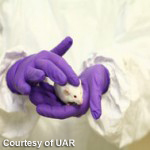
Momentum is gathering behind campaigns to end animal research in Europe. A combination of new EU legislation, pressure on companies that breed and transport lab animals, and even a European Citizens’ Initiative calling for a ban on animal testing, suggests growing hostility toward animal research.
This raises several hard questions. What would happen if animal research was no longer conducted in Europe? Might it be an incentive to accelerate progress on alternative research models?
Would medical research using animals continue elsewhere – and if so, would the standards of care be better or worse than those we have in Europe today? Would it be ethical to use medicines developed where standards are lower? What effect, if any, would this have on the European economy?
We want to hear from you. In the weeks ahead we’ll be posing some of these questions and asking what future animal research has in the EU. You can share your views in the comments section or by connecting on Twitter @ATPerspectives
What do you think
 Loading ...
Loading ...













